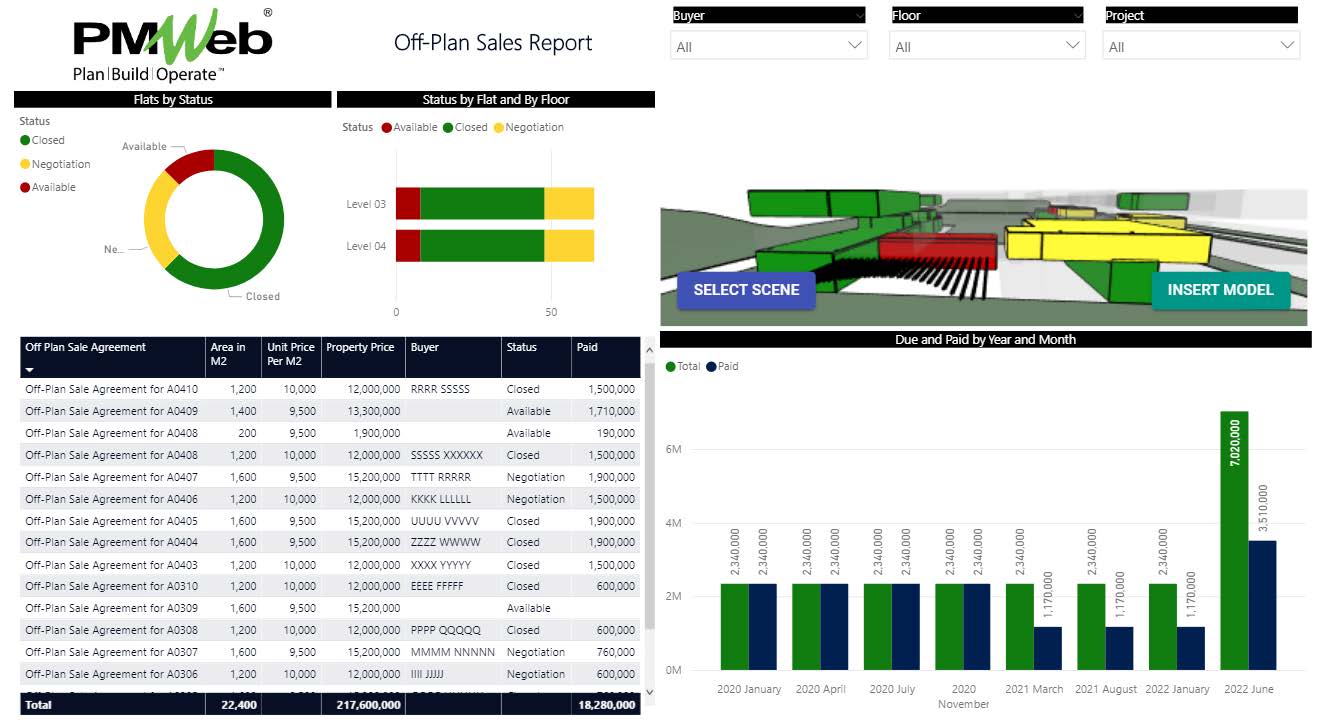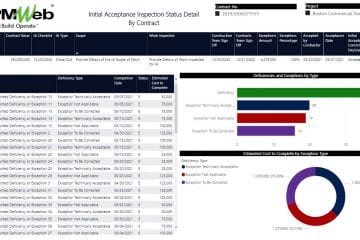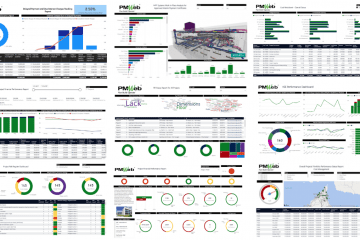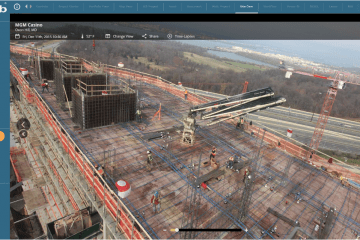Off-plan properties are an opportunity to buy property at a much lower price and enjoy the capital appreciation of the property once it has been built to completion. The low entry price especially appeals to first-time buyers who may find be faced with limited choices for their budget. Once their off-plan purchase is completed, buyers have many choices. They may want to move into their property, or rent it for a periodical return on investment or flip it by selling the property at its present market value and enjoy the one-off capital gain return on investment. For real estate developers, off-plan sales help to reduce the financial risks associated with their real estate developments. In most cases, this route helps the developer with cheaper financing than borrowing from a bank. Therefore, during the early stages of a construction project, quick sales are required and therefore the first batch of properties are usually offered at the lowest possible price which presents the opportunity to maximize potential capital appreciation. The off-plan sales contracts between the developers and the buyers would include details of the payment plan which would link those payments to either a timeline or construction milestones until handover. Some real estate developers might even offer opportunities to continue the payment plan for several years after project completion to make it even easier for the buyer.

Nevertheless, there are many potential risks associated with off-plan sales. For the buyer when purchasing an off-plan property, there is the risk of delayed project completion. Delays could be a result of project delays as well as unrealistic promises made by the property sales team. Since the real estate market fluctuates all the time due to changes in market conditions, the value of the off-plan property could be affected. If there’s a downward move in property prices, the property can be worth less than what the buyer has actually paid. It can affect off-plan properties more as it may be harder to liquidate than ready-to-move-in properties.
Another potential risk is when the real estate developer uses off-sales funds to buy new land plots for future developments. This wrong practice increases the leverage of real estate developers on already small or non-existent equity. This in turn could drastically impact the cash flow needed to build the project which could result in delayed payments to contractors and vendors thus increasing the risk of work stoppage and delays to project completion.
Nevertheless, the risk with the highest impact could be when a property real estate developer starts the off-plan marketing and sales process very early. It is common for some developers to start off-plan sales with an incomplete feasibility study, finalized and approved schematic design, and accurate cost estimate. This could result in selling properties at loss or even defaulting on delivering properties with quality standards as promised.
Real estate developers who build their reputation on satisfied buyers cannot afford the bad publicity associated with the negative results of those risks. Therefore, integrating off-plan sales stage business processes with the overall project delivery business processes enforces accountability on all individuals involved in delivering the real estate project. It also provides greater transparency to buyers, real estate developers, banks, and regulatory bodies among others who might have a role in monitoring and evaluating off-plan sales. Further, it will enable providing a real-time, accurate, and single version of the truth reporting on the updated status of the real estate development project.
Using a Project Management Information System (PMIS) like PMWeb, real estate developers will be able to manage off-plan sales business processes and project management business processes on the same platform. This will not only ensure that the business processes for off-plan sales and project management are closely coordinated and use the same project milestone dates, but also provide real estate developers with a real-time single version of the truth status on the performance of the off-plan sales as well as the project execution performance.
To achieve this, several PMWeb modules will be used. The first of those modules is the schedule module where the development manager must ensure that all project life cycle stages activities including off-sales plan activities are part of the integrated project schedule. Similar to other project plans, this plan will be progressively elaborated to include the more defined and detailed scope of work as well as closed-off-plan sales. The project schedule will be also linked with the payment plan for each off-plan sale agreement to ensure that committed dates are realistic and are in line with the current project schedule status.
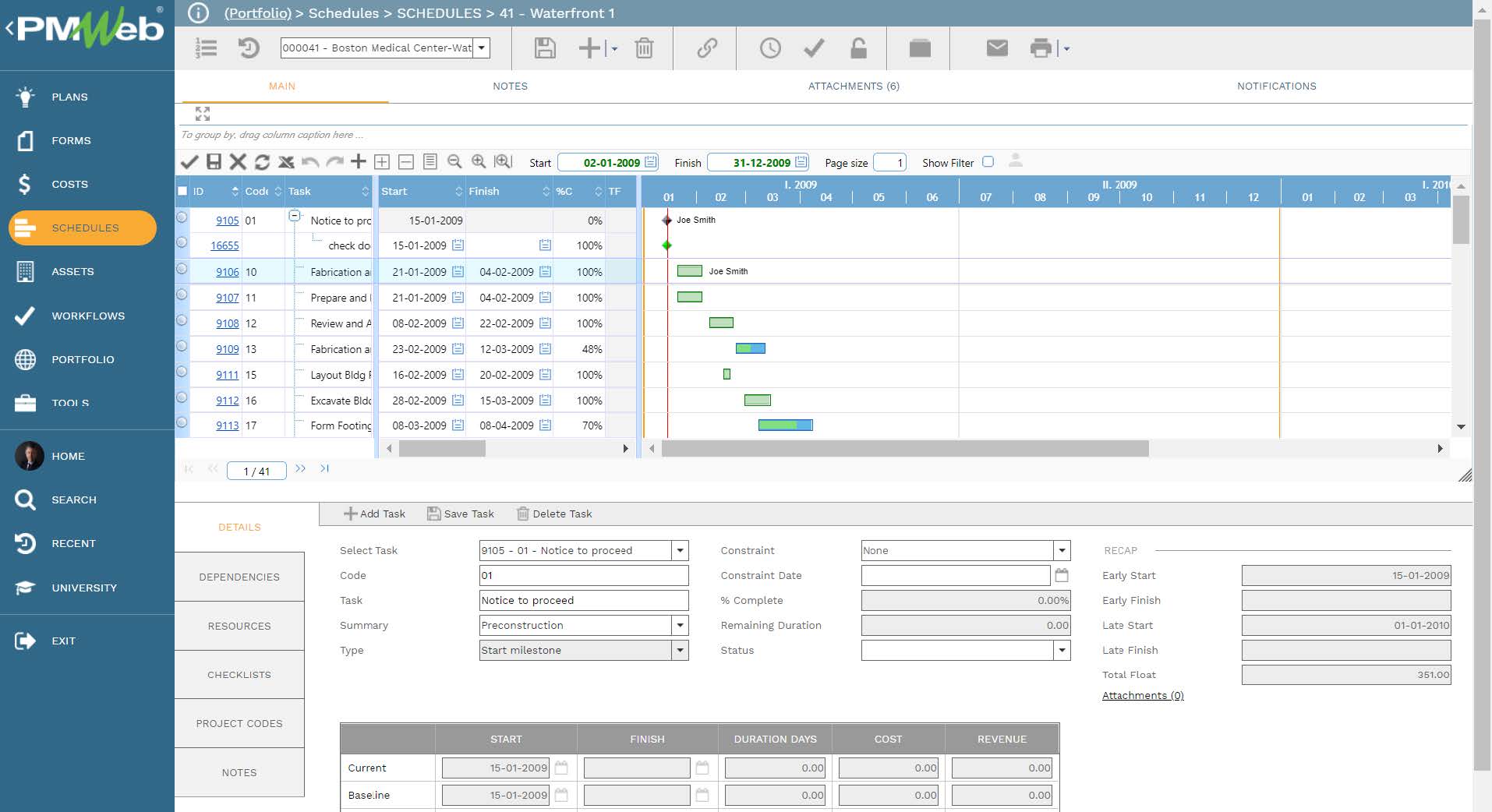
The second module to be used is the company’s module which will be used to capture the complete details of all potential and actual property buyers as well as entities and individuals who have a role in off-plan sales as well as the construction project delivery. The contact details can be imported from the sales CRM solution using a Microsoft Excel file or added directly into the company’s module.
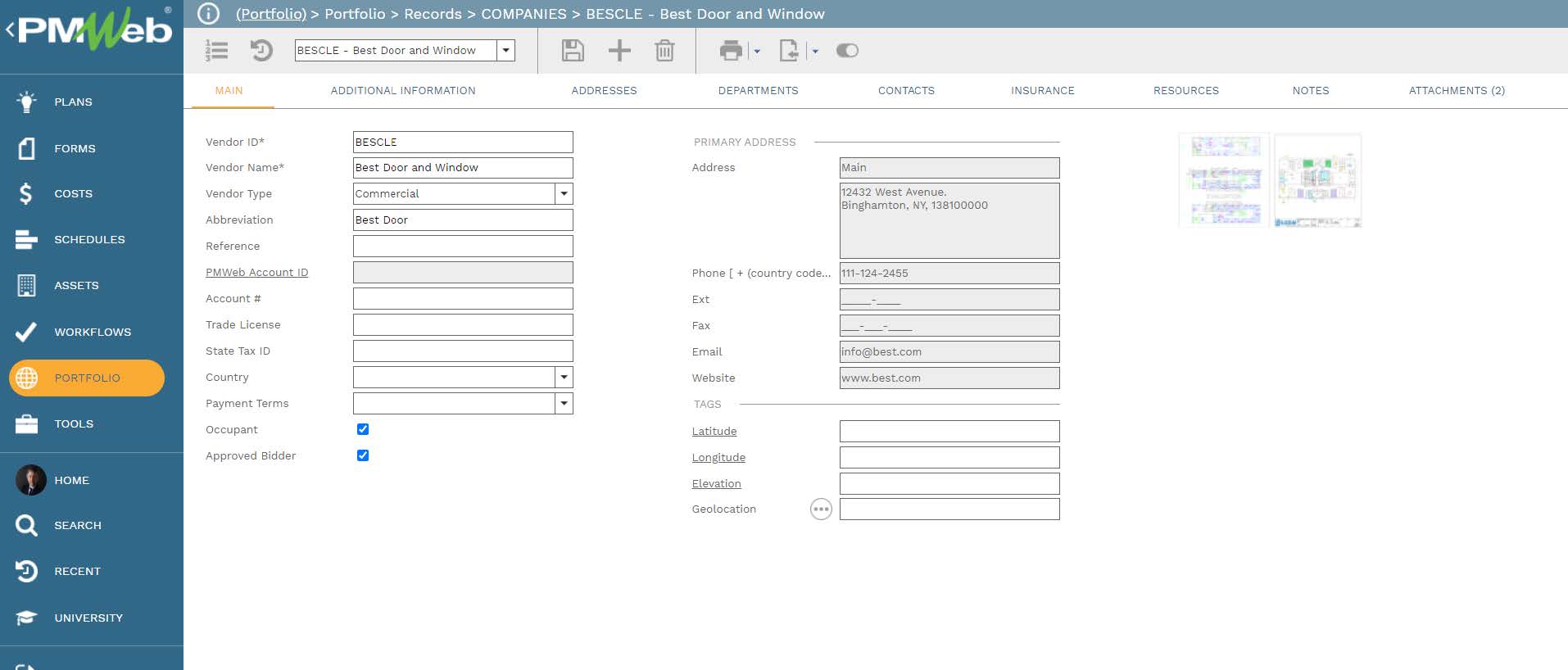
The third module will be the revenue contracts module which will be used to capture the details of every single off-plan sale. Those contracts will itemize the payment plan and link each payment installment with the relevant project schedule milestone activity as well as the financial period that the payment is scheduled to be made. For example, the off-plan sale contract below details the contract eight payment installments. Four of those installments are before the construction of the project starts while the other four installments are associated with the construction project percent complete values which will be added as milestones in the integrated project schedule.
It is recommended that an off-plan agreement is created for every property planned to be offered for sale. Since the payment plan will be identical for most offered properties, PMWeb allows creating copies of the first create contract template. The vendor data field, which will be named as the buyer, will be kept blank so it can be updated with the name of the actual buyer. Doing this will enable the real estate developer to have an immediate report of available property inventory, those under negotiation, and completed sales. In addition, user-defined fields can be added to provide a better description of the off-plan sales agreement like property number, location, etc.
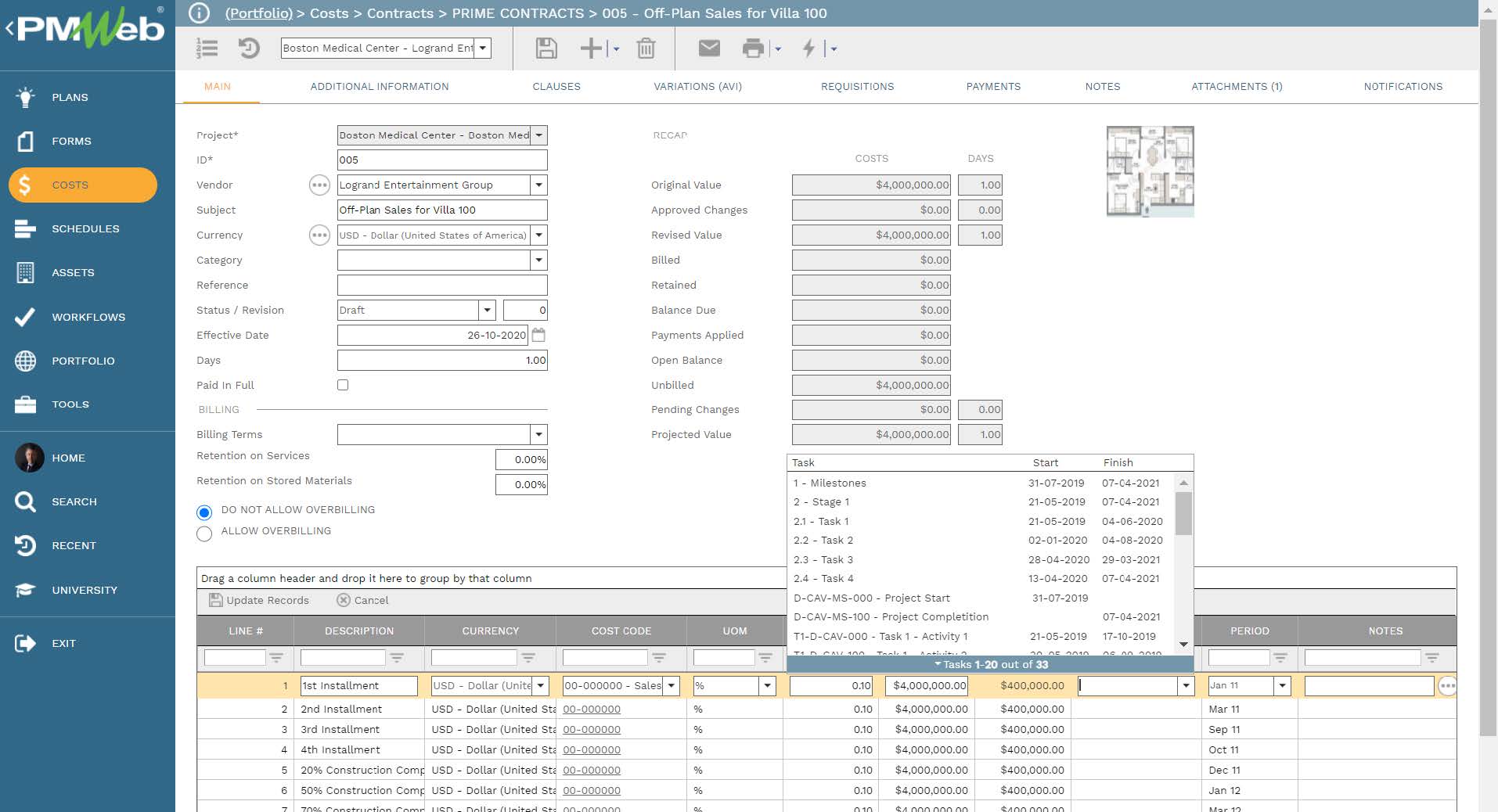
Each off-plan sales agreement will be attached with all supportive documents such as flat layout, signed off-plan sales agreement among others that will be uploaded and stored on the PMWeb document management repository. In addition, links to other PMWeb records and imported MS Outlook emails can be also added.
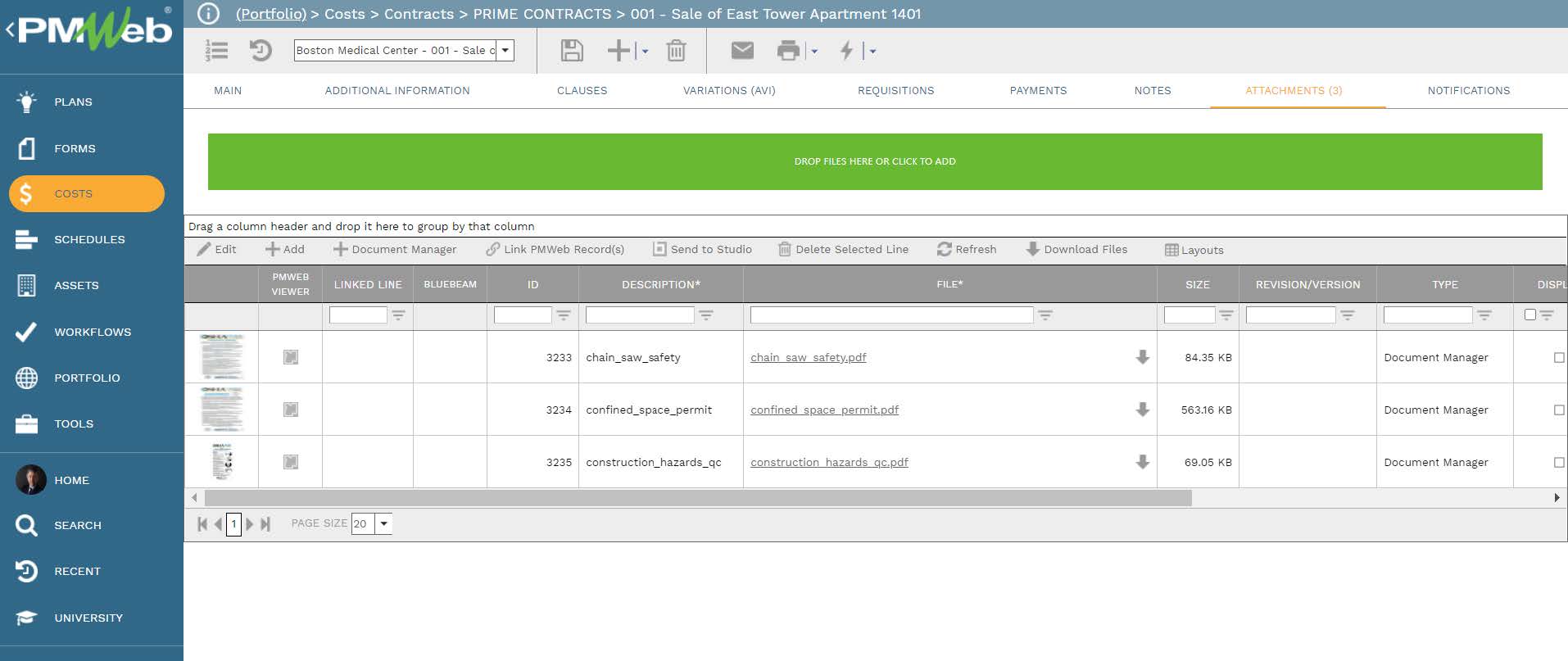
A workflow will be assigned to the off-plan sales agreement to ensure that they had been formally reviewed and approved by the assigned team members including those involved in delivering the project. The workflow will identify the tasks to be performed and in what sequence, the responsibility assigned to each task, the duration of each task, and the actions that can be taken by the assigned team member. In addition, the workflow could embed conditions to enforce the approval authority levels assigned with the property sale price, property type among others.
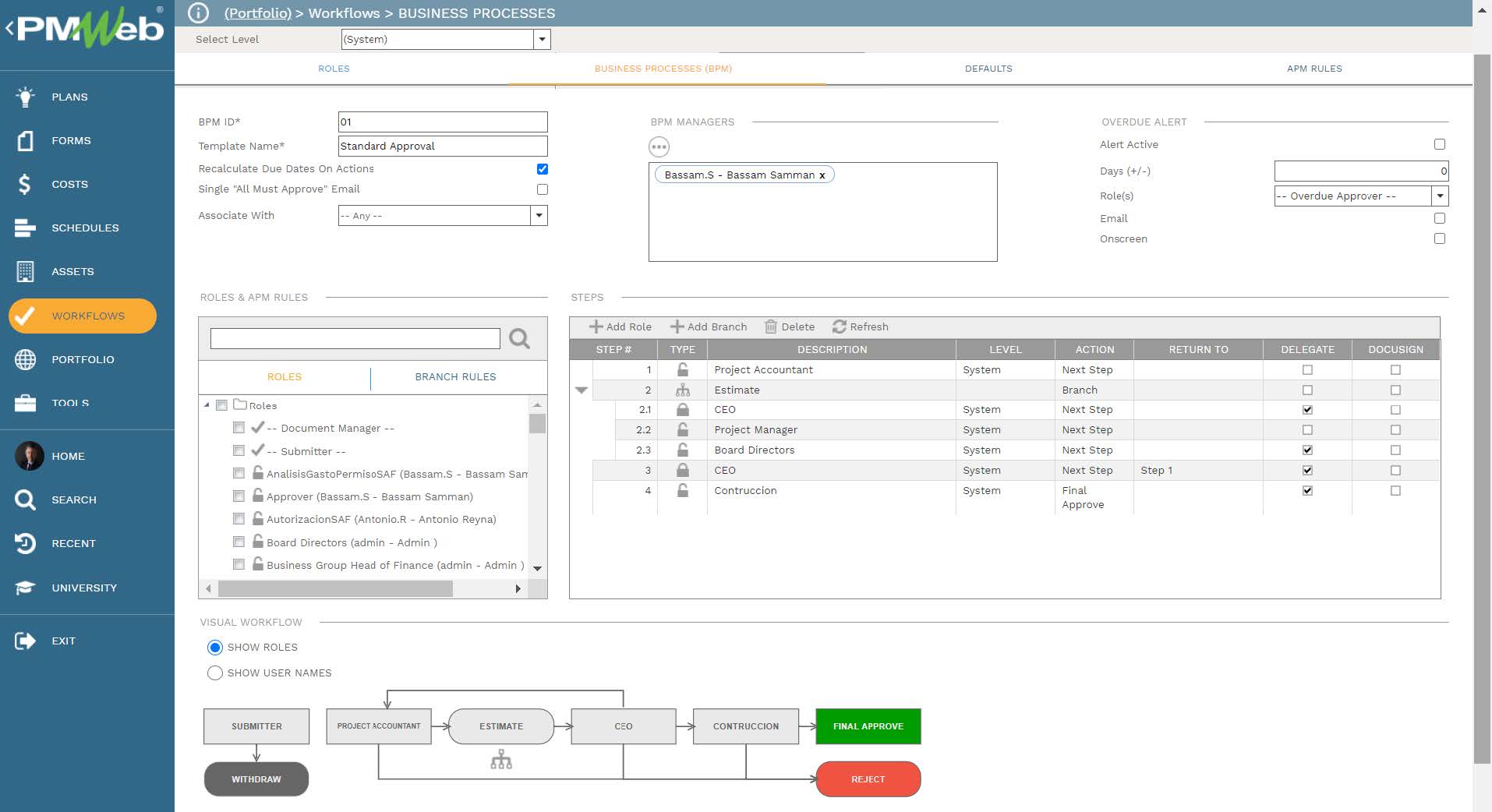
PMWeb Word module will be used to create the off-plan sales agreement templates so they can be generated using the data captured in the contract module. The content of those agreement templates can be copied from the current agreement templates used by the property developer. PMWeb provides the option to generate the off-plan sales agreement in MS Word or PDF file format. The wet-signed agreement needs to be scanned, uploaded, and stored in its designated document management system folder. The scanned agreement will be also attached to the relevant contract record. Those agreements can be in English, Arabic, or any other desired language.
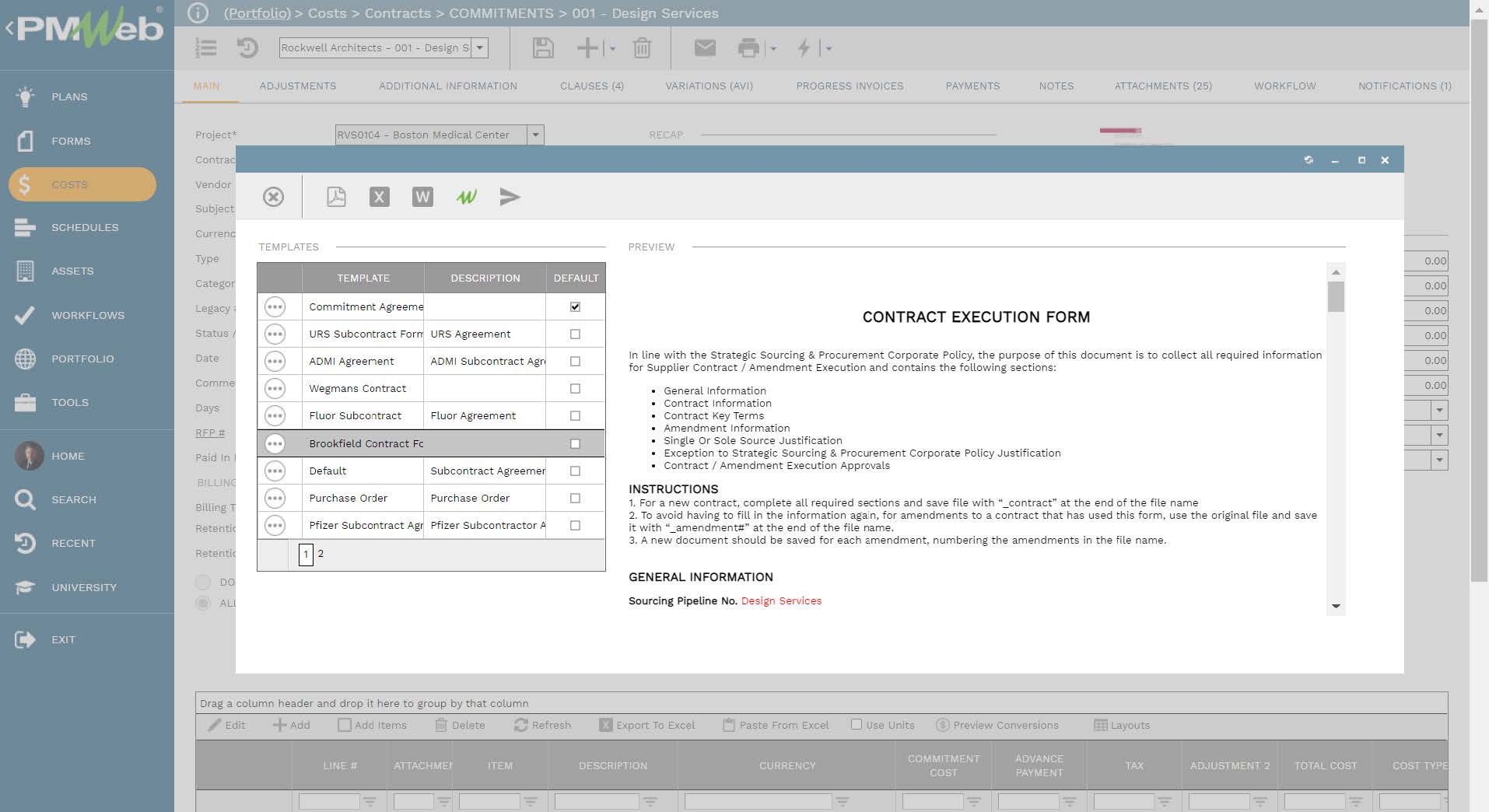
The off-plan sales contract also has the option to capture and manage changes to the off-plan sales agreement should this be needed, issued payment invoices for the payment plan, and details of actual payments received against those invoices. This will enable the real estate developer to have a real-time, single version of the truth on the approved off-plan sale agreements.
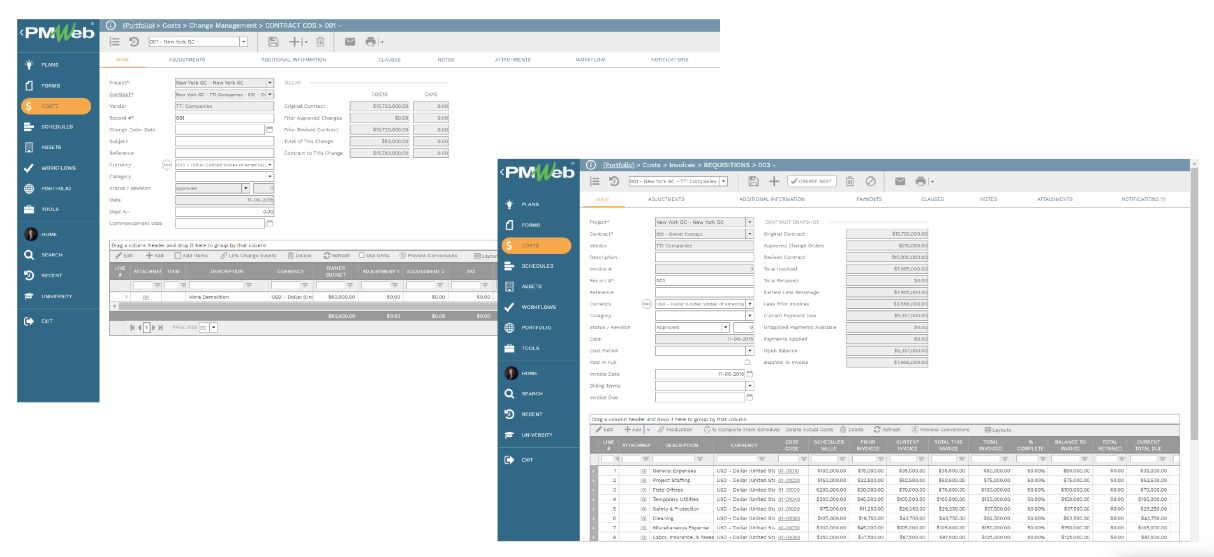
The data captured for the off-plan sales contracts will be used to create a report that will list the details of all closed, under negotiation, and those available. The report could include a donut visual to summarize those off-plan sales by status and a bar chart to summarize those off-plan sales by building floor. The report will also include a histogram to display the planned revenue from sold properties versus the actual revenue received. The histogram could also be designed to include the expected sales revenue for properties that are still available.
The report could also include a visual for the project’s Building Information Modelling (BIM) model. The BIM model and associated data will be exported in a format that can be read, used, and visualized in MS Power BI using the “3DBI” visual developed by KG-DEV (https://kg-dev.be/). The BIM visual will be used to display the properties that were sold or closed, under negotiation and available. All those visuals will use the same color coding for status which is “Green” for sold, “Yellow” for under negotiation, and “Red” for available properties.
